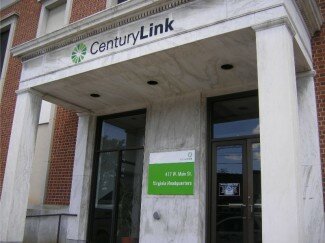Broader-band: CenturyLink acquires Qwest
It seems like just last year that CenturyTel acquired Embarq and started repainting those utility trucks with a CenturyLink logo. Wait, it wasn't even a year ago, and now, the Monroe, Louisiana-based company has added another telco to its belt, this one Qwest Communications with its beefy fiber-optics network.
"The nice thing I can say is we're the acquirer and won't have to change our name," says Rondi Furgason, CenturyLink VP and general manager for Virginia, who is headquartered in the old Centel/Sprint/Embarq building on West Main.
In the $10.6 billion stock-swap deal, CenturyLink takes a 50.5 percent majority ownership. The combined landline companies will operate in 37 states with 17 million access lines, 5 million broadband customers, 1.4 million video subscribers and 850,000 wireless consumers.
The latter will come from Qwest, because Embarq/CenturyLink ditched its wireless customers last year. The newer, bigger company will continue to train its sights on broadband and landlines.
"We believe broadband is the product of the future, and we're extremely focused on deploying broadband," says Furgason.
And as retro as landlines may seem to some cellphone-only or digital-cable telephone users, CenturyLink is not giving up on that market.
"I still think so many people want landlines," says Furgason, especially those with children, multiple bedrooms, and babysitters. "It is a relevant product during some life cycles."
She notes that over the winter, a lot of people with home phones through their cable had no service when the power went out. Nor did cellphone chargers work when electricity was absent.
Charlottesville-area CenturyLink residential customers won't see any changes with the merger because Quest doesn't operate east of the Mississippi, says Furgason.
What they may notice is that the phone company is moving to CenturyTel's more local and regional management model, says Furgason. Hence, a vice president in Charlottesville makes decisions on operations here rather than one in Overland Park, Kansas, where Embarq was headquartered.
And Denver-based Qwest brings a colorful history to the merger. The company was founded in 1996 by Southern Pacific Railroad owner Philip Anshutz, who installed fiber-optic cable along the railroad's rights-of-way. When Southern Pacific merged with Union Pacific in 1998, Anshutz added cable to those rail lines as well. Qwest also had a nationwide contract to lay fiber optics along railroads for MCI, and Anshutz laid his own company's lines at the same time.
Qwest made national news in 2006 when–- unlike AT&T, Verizon, and BellSouth–- it refused to turn over customer phone records to the National Security Agency. A federal judge ruled the domestic eavesdropping program unconstitutional that same year and ordered it stopped.
A less proud chapter was the debacle surrounding former Qwest CEO Joseph Nacchio. In 2007, after allegedly manipulating the stock price, he was convicted of 19 counts of insider trading and sentenced to six years in federal prison and ordered to pay a $19 million fine.
The CenturyLink/Qwest merger is expected to be completed by the middle of 2011.
Updated 1:05pm Overland Park corrected.

6 comments
Qwest is considered a bad name. Anyway, the name here won't be changing. Interestingly, Sprint and Qwest are both Tier 1 internet, so we're back on the mainline. Except none of the mainlines go through here! There is a faint faint chance of fiber to the house, and a less faint chance of super DSL (about 30Mbits), since Qwest has been known to invest in that.
Worst case, we are looking at a FairPoint Communications situation. People in the know in a telecom giant spin off all the profitable sections, such as cellular and business, and leave the hulking mess of a largely rural, consumer landline phone comapany to die. It went from part of Verizon to bankruptcy in about 13 short months:
http://en.wikipedia.org/wiki/FairPoint_Communications
All the people at the top have to do is manage their own personal stock portfolios smartly, and pretend to be acting in the interest of the company. Read it and weep.
Has anyone ever figured out how much these name changes cost the consumer (yes I gathered no imminent change this time)? Vepco cum Virginia Power cum Dominion Power, etc. Each time it's a fleet painting, new letterheads and who knows what else has to be changed, with zero increase in service or productivity.
Bring that fiber optic net this way quick or Google might beat you to it!
Does this mean that something other than dial-up will be available out in the hinterlands? I know satellite's an option, but it's expensive and clunky.
Embarq was headquartered in Overland Park, KS, not just "Overland", KS.
I don't care if it's Fiber or what, just faster ;)
It has to cost hundreds of millions. Everything has to be changed; every sign, every truck, every letterhead, business cards. If I was an investor I'd be complaining.